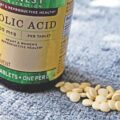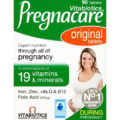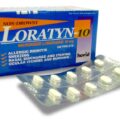Folic acid is the synthetic form of folate, which is a naturally occurring B vitamin. Folate helps make DNA and other genetic material. It is especially important in prenatal health.
Folate, also called vitamin B-9, is a B vitamin that naturally occurs in certain foods. Folic acid is the form of folate that manufacturers add to vitamin supplements and fortified foods.
If you’ve been looking at supplements for fertility, you’ve likely come across recommendations for folic acid. One of the B-vitamins, folate (or folic acid, as it’s known in supplement form) is needed for the development of red blood cells and DNA production. Folate also plays an important role in cell division. Low folate blood levels are associated with a form of anemia.
Folic acid is clearly an essential nutrient in the body. But can folic acid help you conceive? Should men also be taking folic acid? Should you take a supplement, or can you get what you need from diet alone?
Folic Acid and Female Fertility
Women who don’t get enough folic acid in their diet are at a higher risk of having a baby with a neural tube defect. When we consider how a baby begins—a single cell that divides and divides—it makes sense that folic acid could help ensure cell division, and therefore fetal development goes well.
Neural tube defects, which occur in about 3,000 pregnancies per year in the United States, include spina bifida, anencephaly, and encephalocele. At best, these birth defects can lead to lifelong disability, and at worst, they can lead to early death.
If you have a family history of neural tube defects, you have an even higher risk of having a child with one of these birth defects.
While folic acid can’t eliminate these birth defects, folic acid supplementation started before conception and continued through early pregnancy has been found to cut the occurrence of these birth defects by up to 60 percent. Other possible benefits of folic acid supplementation include:
- Lower risk of congenital heart defects
- Lower risk of preterm birth and a lower risk of low-birth-weight babies
- Increased progesterone levels and a lower risk of irregular ovulation
There are many good reasons for women trying to conceive to be sure they get enough folate. In the Nurses Health Study — a large, long-running public health study — a higher intake of vitamins B-1, B-2, B-3, B-6, and B-12 was associated with a lower risk of ovulatory infertility (“Ovulatory infertility” is when an ovulation disorder is the cause of your infertility).
Some studies have linked low levels of vitamin B-12 with female infertility. Plus, research shows that having higher levels of B-12 and folate may enhance fertility in women undergoing infertility treatment.
How Long After Taking Folic Acid Will I Get Pregnant?
Pregnancy doesn’t start the day you have sex — it can take up to six days after sex for the sperm and egg to join and form a fertilized egg. Then, it can take three to four days for the fertilized egg to completely implant itself in the lining of the uterus. Ideally, you should take folic acid supplements for two to three months before you conceive and until you are 12 weeks pregnant.
Most couples are able to get pregnant within six months to a year. If you’re unable to conceive after a full year of trying, it’s a good idea to consult a fertility specialist. Sometimes there’s an obvious cause of infertility, as a physical problem with the ovaries, uterus, or testicles.
Foods with Folate
Many foods, particularly dark, leafy greens, are full of folate, which helps to make it easy to get all of the vitamin B9 you need from your diet. You can also find fortified cereals that contain vitamin. Some of the foods with the most folate include:
- Beef Liver
Most meats are low in folate. Beef liver, however, is one of the most concentrated sources available. In addition to providing 215mcg of folate per 3-ounce serving, beef liver also provides a decent amount of protein and more than 100% of your recommended daily intake of vitamin A, vitamin B12, and copper.
- Dark, Leafy Greens
Many types of dark, leafy greens have high concentrations of folate. Spinach, a powerhouse of nutrients, provides 58mcg in a 1-cup serving of raw leaves and 131mcg in a half-cup serving of cooked. A half-cup of boiled mustard greens has 52mcg. A cup of raw collards has 46.4mcg.
- Legumes
Legumes, which include beans, peas, and lentils, are an excellent source of plant protein, as well as fiber, iron, magnesium, and antioxidants. They’re also high in folate, with different varieties providing different amounts. A half-cup of kidney beans has 46mcg and black-eyed peas have 105mcg. A half-cup of peas has 47mcg.
- Asparagus
Asparagus is high in many important nutrients, including folate. Four spears have 89mcg. The vegetable also provides anti-inflammatory and antibacterial properties.
- Broccoli
Like many other vegetables, broccoli is high in many essential vitamins and minerals, such as vitamin C, vitamin K, and vitamin A. A 1-cup serving of raw broccoli has 57mcg of folate. The folate content is even higher when you cook broccoli, with a half-cup serving providing 84mcg.
- Oranges
Oranges, and other citrus fruits, are most well-known for their vitamin C content. They also contain a decent amount of folate. One small fresh orange provides 39mcg of the vitamin.
- Bananas
Bananas are typically known best for their potassium content. They’re high in carbohydrates, and they’re easily digestible. Add the fact that they’re highly portable, and they’re a perfect pre-workout snack. One medium banana also contains 24mcg of folate.
- Eggs
Eggs are a common breakfast food, high in many essential vitamins and minerals. Along with protein, selenium, riboflavin, and vitamin B12, one hardboiled egg contains 22mcg of folate. While eggs are generally considered healthy, the yolks are high in cholesterol. If you have high cholesterol or heart disease, or you’re trying to watch your cholesterol intake, you may want to limit the number of eggs you eat per week. SEE: List Of Nigerian Food To Eat During Pregnancy







